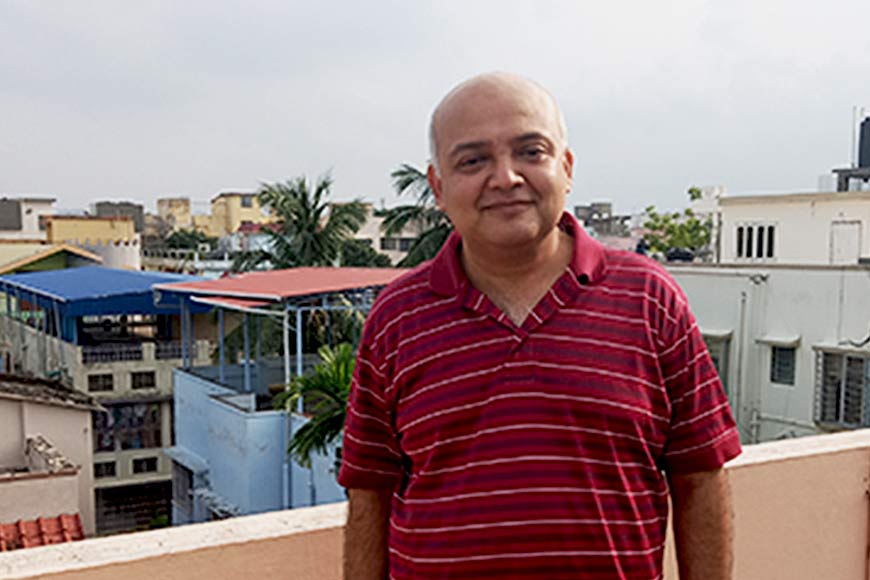City IT pro, Ambarish Ganguly chosen as NASA Citizen Scientist

Achievers from Bengal have always topped the list and now our city-bred IT professional Ambarish Ganguly has been chosen as a NASA Citizen Scientist. He has already bagged eight Data Science Competition Awards (One of them sponsored by NASA and the rest by Kaggle, a Google company). National Aeronautics and Space Administration (NASA), the renowned US government agency is responsible for science and technology related to air and space. NASA’s citizen science projects are collaborations between scientists and interested members of the public. Through these collaborations, volunteers (known as citizen scientists) have helped make thousands of important scientific discoveries.
Ganguly is otherwise an unassuming, soft-spoken alumnus of St. Xavier’s College who completed his Masters from University of Calcutta in Computer Science and Engineering. He is presently working with Tata Consultancy Services (TCS) as the Energy Trading and Risk Management Lead, as well as Data Analytics Practice Lead for TCS Utilities. An armchair cricket enthusiast, Ganguly is a voracious reader and gorges on detective stories, novels and movies. Since childhood, he was curious to know the science behind the various natural and mechanical phenomena and it was only natural that he would opt for science, Physics, to be more precise, as his subject of choice for higher studies. After completing schooling from St. Mary's Orphanage and Day School, Dum Dum Kolkata with flying colours, he joined St. Xavier’s College, Kolkata, with honours in Physics.
His foray into the domain of NASA Citizen Science project happened by chance. He got involved with the data science competition ‘Random Walk of the Penguins,’ which was hosted by DrivenData and was a collaborative effort between Oceanites, Inc., Black Bawks Data Science Ltd., and Dr. Heather Lynch's lab at Stony Brook University. The goal of this competition was to reach out to the data science community to build a model that predicts penguin populations. The prediction of changes in penguin populations is important for the long-term management of these species and important for understanding the entire ecosystem.
He won the first prize in the competition. Ganguly and the other winners, along with Dr. Grant Humphries, wrote a paper on their methods. Apart from the project with the penguin population, he was associated with a number of data science projects for social good, including Kiva Crowd Funding, Donors Choose Recommendation, PASSNYC, and Center for Policing Equity (CPE). All the projects involved extensive data analysis, visualizations, and modeling.
Kiva Crowd Funding is a nonprofit organization that provides loans to the needy all over the world. The project, which was in the form of a data science competition, was to help them build more localized models to estimate the poverty levels of residents in the regions where Kiva has active loans. While, Donors Choose Recommendation was founded in 2000 by a Bronx history teacher. PASSNYC is also a not-for-profit organization that identifies schools, where minority and underserved students stand to gain the most from services like afterschool programmes, test preparation, mentoring, and resources for parents.
The Center for Policing Equity (CPE) is research scientists, race and equity experts, data virtuosos, and community trainers working together to build more fair and just systems. The ultimate goal of this project was to inform police agencies where they can make improvements by identifying deployment areas where racial disparities exist and are not explainable by crime rates and poverty levels. All projects had a common theme, which was data science for social good, and all were data science competitions. Ganguly enjoyed working in all these projects and the CPE project, he confesses, was the one that he enjoyed most and was closes to his heart since it used various types of data sources, such as tabular data and geospatial data. (this was his first opportunity to get a wide exposure to geospatial data) and it was also a learning process for him.
As NASA Citizen Scientist, Ganguly feels being curious and persistent were two important takeaways. The data science competition ‘Random Walk of the Penguins’ ran for around two months and he bagged the first prize. In fact, he advises and encourages all science enthusiasts to volunteer with NASA. “It's a wonderful way to be involved in things which have great impact. The icing on the cake is you also get to collaborate with the best brains (who are also wonderful people),” he insists. In fact, the biggest challenge for Ganguly is to invest more time in these NASA projects and he hopes to participate more in such projects in the future.
(Source: Additional Data from Ambarish Ganguly’s Linkedin account)









